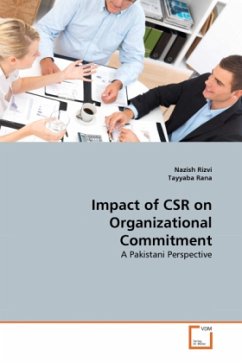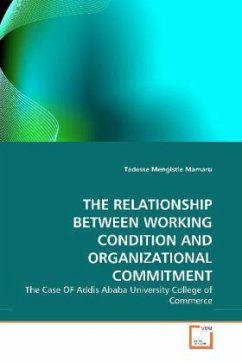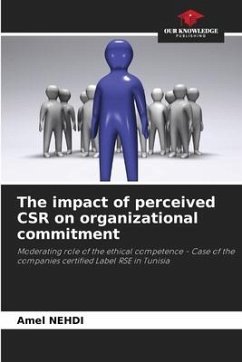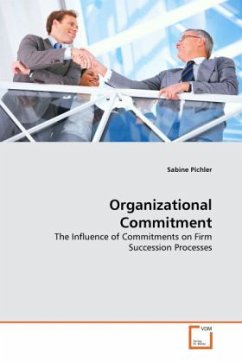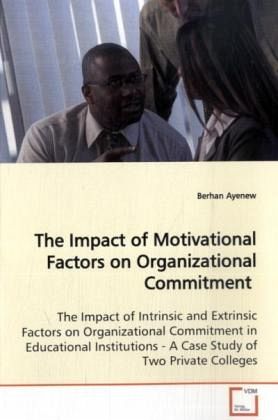
The Impact of Motivational Factors on Organizational Commitment
The Impact of Intrinsic and Extrinsic Factors on Organizational Commitment in Educational Institutions - A Case Study of Two Private Colleges
Versandkostenfrei!
Versandfertig in 6-10 Tagen
32,99 €
inkl. MwSt.

PAYBACK Punkte
16 °P sammeln!
Private higher education is a rapidly expanding part of Ethiopia s higher education system. Investment in private higher institutions is growing, but little is known about the management in general, and the nature of work factors and employees commitment in particular. This study revieled that instructors in private colleges were satisfied with intrinsic factors of work such as opportunity for achievement,challenging work, responsibility, and opportunity for growth and development. Where as, they were dissatisfied with extrinsic content of work such as salary, fringe benefits, incentives, job ...
Private higher education is a rapidly expanding part
of Ethiopia s higher education system. Investment in
private higher institutions is growing, but little
is known about the management in general, and the
nature of work factors and employees commitment in
particular. This study revieled that instructors in
private colleges were satisfied with intrinsic
factors of work such as opportunity for
achievement,challenging work, responsibility, and
opportunity for growth and development. Where as,
they were dissatisfied with extrinsic content of
work such as salary, fringe benefits, incentives,
job security, opportunity for training, and post
employment security. Moreover, there was a
structural inequity, a perception that they are
required to do too much work for small pay.
Consequently, employees were not committed to their
organization which implies the availability of high
turnover and lower performance. To build a viable
work force for the success and industrial peace, the
colleges should invest in the long term goal of
their employees and learn to balance their interest
to earn a higher profit with those of their
employees.
of Ethiopia s higher education system. Investment in
private higher institutions is growing, but little
is known about the management in general, and the
nature of work factors and employees commitment in
particular. This study revieled that instructors in
private colleges were satisfied with intrinsic
factors of work such as opportunity for
achievement,challenging work, responsibility, and
opportunity for growth and development. Where as,
they were dissatisfied with extrinsic content of
work such as salary, fringe benefits, incentives,
job security, opportunity for training, and post
employment security. Moreover, there was a
structural inequity, a perception that they are
required to do too much work for small pay.
Consequently, employees were not committed to their
organization which implies the availability of high
turnover and lower performance. To build a viable
work force for the success and industrial peace, the
colleges should invest in the long term goal of
their employees and learn to balance their interest
to earn a higher profit with those of their
employees.



